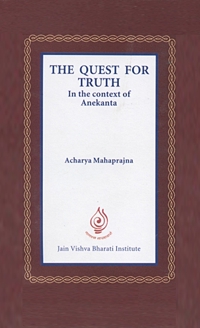
Two thousand five hundred years ago India was divided into several principal kingdoms of Magadh, Ang, Bang, Kaling, Vats, Avanti, North Koshal etc. Licchavi in Vaishali, Shakya in Kapilavastu and Mall in Kushinara and Pava were democracies. The people of these areas were governed by democracy. In the kingdom states the king was looked upon as a personification of god. In democracy the ruler was looked upon as just another man. Bhagvan Mahavira was the son of Siddhartha, the elected ruler of Vaishali. His mother's name was Trishala. Kshatriyakundgram was a small suburb in Vaishali. On this sacred land Bhagvan Mahavira was born. He was born on the 30th of March, 599 BC. There is very little information available on his childhood or his youth. When Mahavira turned twenty eight, his parents died. He expressed the desire to become a monk (shraman). His uncle Suparshav and his elder brother Nandivardhan requested him to stay home a little longer. Mahavira was too gentle and humble to turn down their request and yet his resolve could not accept the life of a householder. This internal conflict opened a new route. Perhaps it is at this time that he developed the following sutra:
The one who has not given up his desires but has become a shraman is neither at home nor away from it. But having given up desires, one can stay at home and yet remain far away from it.
In the following two years that he stayed at home, Bhagvan Mahavir was at home and yet far away from it. In this time he practiced austerities for developing detachment to the human body.
He remained alone even in the midst of his family. The one who does not have attachment can live alone even in a group.
He specially practiced curbing the sense of taste. The one who has tasted the bliss that lies beyond the body has no problems in practicing indifference to the palate.
He was absorbed in silence and meditation. The one who does not need to express himself or herself in the outer world finds his speech becoming silent, thoughts zeroing down.
With the austerities practiced by him during these two years, the foundations to monkhood became stronger. The time period sought by his elders now came to an end. He felt that while it is possible to stay home and yet remain detached, this was not society's path. This was the path chosen by a few. That which can fit into society is the act of giving up attachment/ desire and also giving up the home. The one who wishes well for everybody acts as would be conducive to building a harmonious society. Bhagvan Mahavira got permission to leave home and taking leave left Kshatriyakundgram and went to a garden outside the village. Amidst a gathering of people he was ordained and from thereon he set out on the lifelong path of equanimity.
 Acharya Mahaprajna
Acharya Mahaprajna


